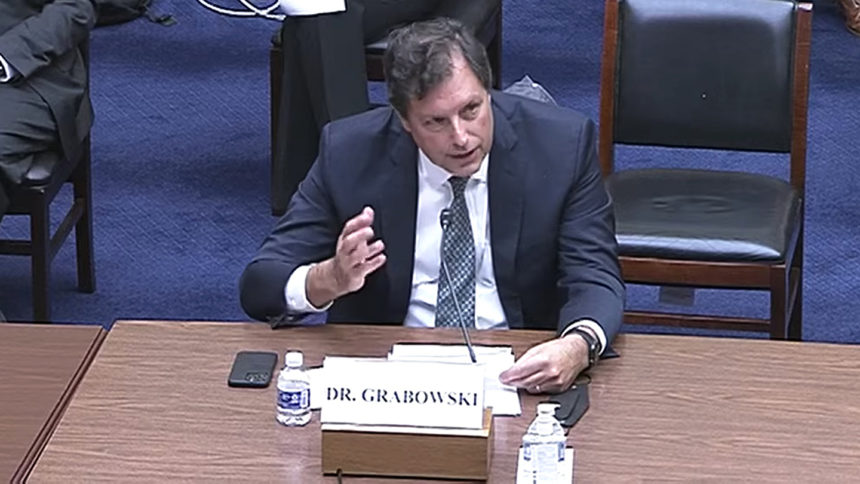
Halfway through Wednesday’s nearly-two-hour-long hearing of the House Select Subcommittee on the Coronavirus Crisis, Rep. Bill Foster (D-IL) recounted the COVID-19-related deaths of family members in a nursing home in Pennsylvania and noted the plight of the staff there.
“The staff there were doing the best they could under terrible circumstances,” said Foster.
He noted the rise in personal wealth in the past decade and lamented that the country’s older citizens aren’t feeling that increase..
“We’ve been under-investing in end-of-life care in this country for a long time,” he said. “There is enough money in this country to solve this problem. It’s not like we’re asking for something that’s unachievable. We have enough money to fix this. It is to our shame that we don’t.”
Foster’s thoughts were a central theme of the hearing, which focused on the pandemic’s ongoing effects on nursing home staff and residents.
Many problems that afflicted nursing homes before the pandemic were thrust into the spotlight because one-fifth of the nation’s pandemic-related deaths have been connected to nursing homes.
The fact that more than 200,000 long-term care staff and residents died from COVID-19 created the impetus for the hearing, which began about five hours after the subcommittee released a damning investigation into conditions at for-profit nursing homes.
“The ferocity with which the coronavirus swept through our nation’s nursing homes in 2020 exposed vulnerabilities that had been building for years,” subcommittee chair James E. Clyburn (D-SC) said in his opening statement.
“Too many nursing homes had inadequate staffing and poor infection control well before the pandemic. These long-standing problems helped to drive outrage and exacerbated the risks for Americans who need long-term care.”
In between partisan bickering among lawmakers trying to score political points with their questioning and attention to their rivals’ administrations and decisions, expert witnesses laid out what the sector needs.
Harvard professor David Grabowski, PhD, told Foster he was studying ways that immigration reform could ease staffing shortages.
“It turns out areas with greater immigration see an increase in the workforce in nursing homes and, guess what, it leads to better quality and so that link is absolutely there,” Grabowski explained. “We need to encourage strong pathways to get more immigrants in because that’s going to be a big part of the puzzle. It’s not the only piece but it’s going to be a big part of it going forward. We cannot do this on domestic workers alone.”
Jasmine Travers, PhD, an assistant professor at the NYU Rory Meyers School of Nursing, said keeping the current nursing home workforce and attracting new workers is crucial as well.
She proposed that the Centers for Medicare & Medicaid Services better hold facilities accountable for following staffing-related guidelines and encourage states to use Medicaid funding to improve nursing home funding and to tie increases to accountability measures like quality standards and higher staff wages.
Travers also highlighted inequities among homes with and without Black residents.
“Homes with any Black residents experience significantly more COVID infections and deaths than homes with no black residents,” she said. “Beyond the pandemic, when compared to their white counterparts, Black and Latino residents are likelier to experience pressure ulcers, falls, and undertreatment for pain, ordered antipsychotics and restraints, and less likely to receive preventative care.”
Travers, Grabowski and Alice Bonner, PhD, chair of the Moving Forward: Nursing Home Quality Coalition, all pressed subcommittee members to work with them to improve the lives of staff and residents.
“I urge the subcommittee to recognize that older adults do not want to stop living although they might need help living,” Travers said. “Only then will we be able to start to make the meaningful change necessary to improve nursing home care for our staff, residents and families.”



